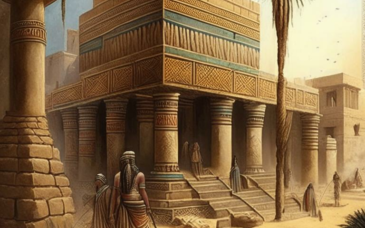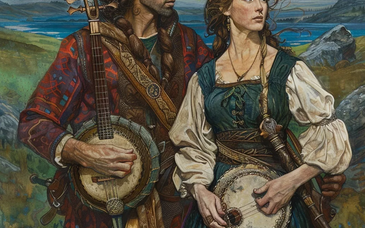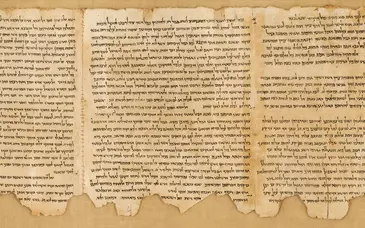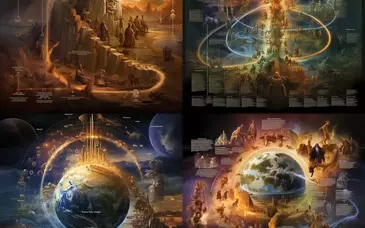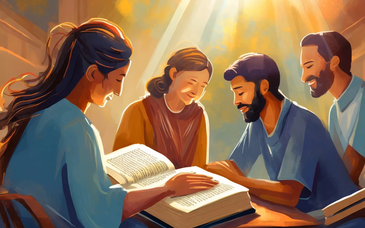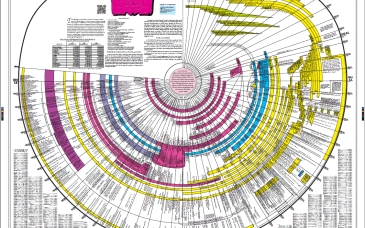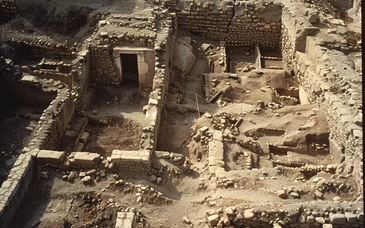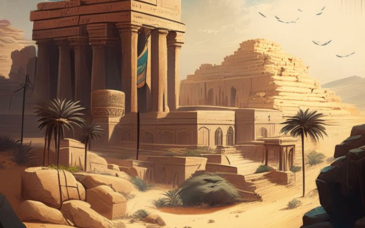In the rich tapestry of human history, the Bible stands as a profound and enduring narrative that weaves together tales of faith, morality, and divine intervention. Join us on a captivating journey as we explore "Timeless Tales: Connecting Bible Stories to Historical Events," unraveling the threads that bind sacred scriptures to the annals of our shared past.
The Intersection of Faith and History:
Bible stories are more than just ancient parables—they are windows into the historical landscapes of their time. By delving into the historical context surrounding these narratives, we gain a deeper appreciation for the real-world events that inspired and shaped the moral and spiritual lessons conveyed in the scriptures.
From Creation to Exodus: Navigating Historical Timelines:
Embark on a chronological exploration that links biblical events to historical timelines. From the creation story to the Exodus, we'll traverse the annals of time, connecting the dots between the sacred texts and the tangible historical events that unfolded in the ancient world.
Prophets and Kings: Unveiling the Real-Life Figures:
Meet the prophets and kings who walked the earth, not merely as characters in a religious narrative, but as historical figures who played pivotal roles in shaping the destinies of nations. Explore the archaeological evidence and historical records that illuminate the lives of these extraordinary individuals.
Archaeological Insights: Unearthing the Past:
Biblical archaeology serves as a key to unlocking the mysteries of the past. Join us in examining the archaeological discoveries that corroborate and illuminate the events described in the Bible. From ancient artifacts to unearthed cities, each find offers a tangible link between scripture and historical reality.
Epic Battles and Triumphs: Historical Realities in Warfare:
Many Bible stories depict epic battles and triumphs. Explore the historical contexts of these conflicts, from the conquest of Jericho to the struggles of David and Goliath. By connecting these narratives to real-world military strategies and geopolitical landscapes, we uncover profound insights into the challenges faced by ancient civilizations.
Cultural Influences: How Ancient Societies Shaped the Scriptures:
Dive into the cultural influences that permeate the pages of the Bible. From societal norms to religious practices, understanding the historical context of the scriptures allows us to appreciate how ancient cultures shaped and were shaped by the stories they held sacred.
Inscriptions and Artifacts: Tangible Links to Biblical Stories:
Discover the power of tangible artifacts as we examine inscriptions, scrolls, and other archaeological finds that provide physical connections to biblical narratives. Each artifact serves as a testament to the historical authenticity of the events described in the scriptures.
The Exodus and Beyond: Navigating Historical Landscapes:
Explore the historical landscapes of the Exodus and other significant biblical events. Uncover the geographical and archaeological evidence that sheds light on the journeys of the Israelites and the landscapes they traversed, adding a new dimension to these timeless tales.
"Timeless Tales: Connecting Bible Stories to Historical Events" invites us to embark on a captivating expedition, where faith and history converge. By bridging the gap between sacred scriptures and historical realities, we gain a deeper understanding of the enduring impact these timeless tales have had on the course of human history. Join us as we unravel the layers of time and explore the profound connections that bind our spiritual heritage to the rich tapestry of the past.
